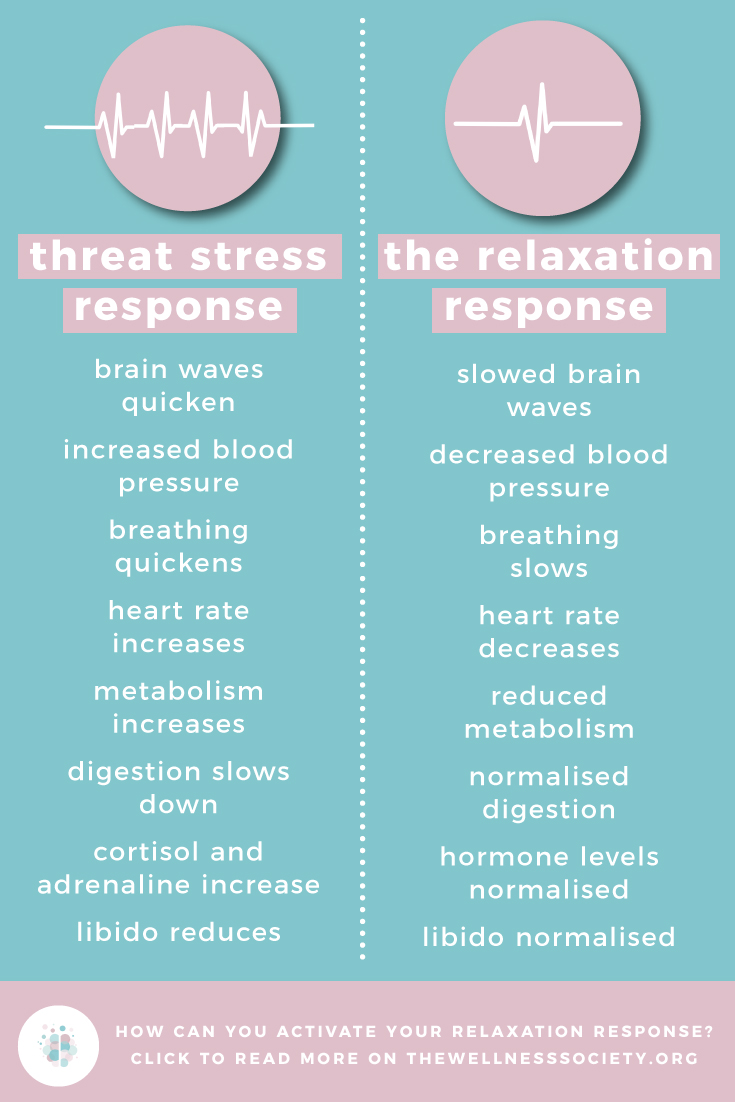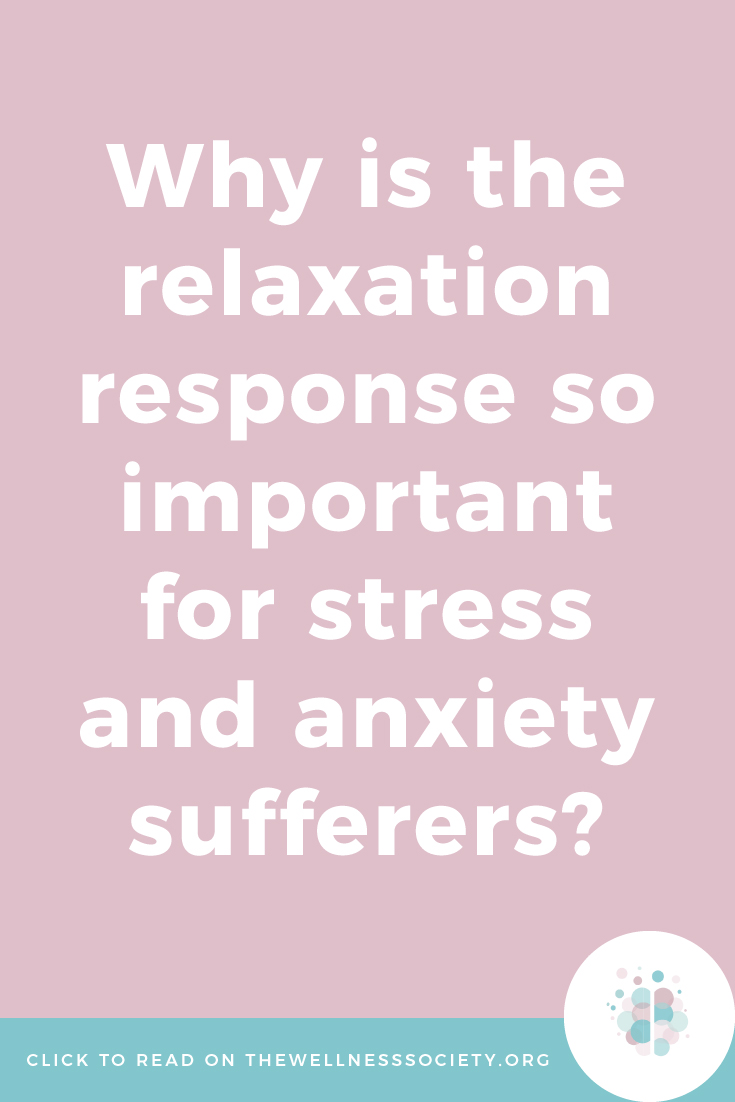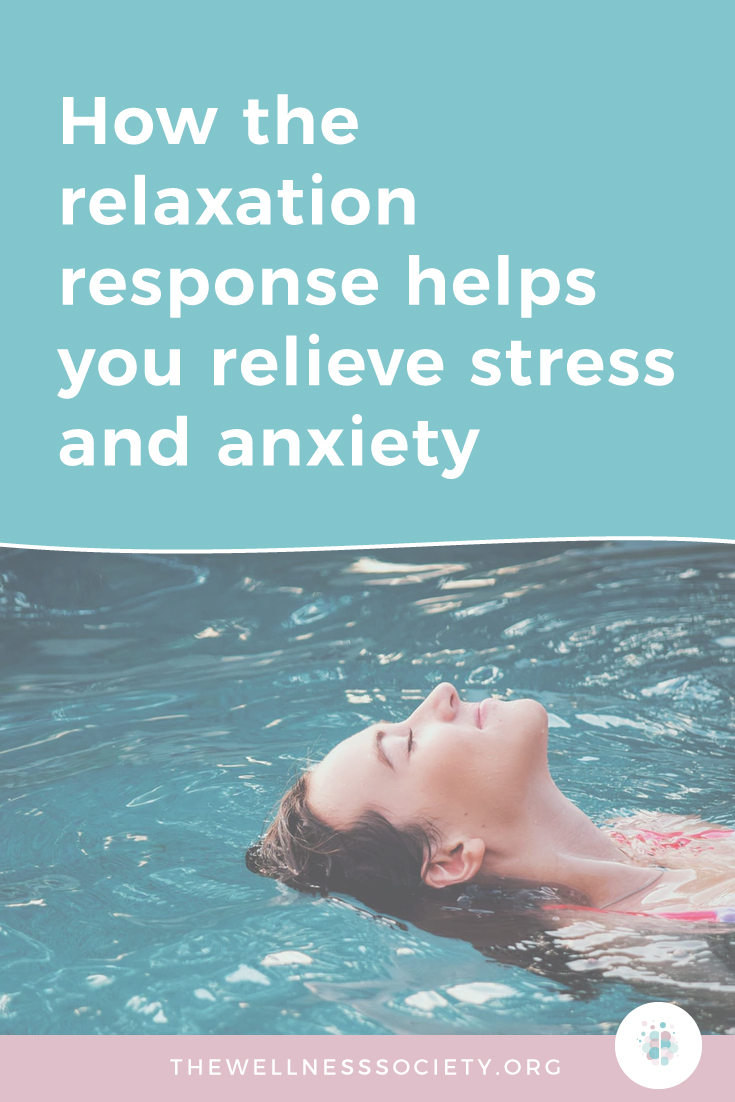“Because the fight-or-fight response and the relaxation response are in opposition, one counteracts the effects of the others. This is why we feel the relaxation response is of such importance, for with its regular use it will offset the harmful effects of the inappropriate elicitation of the fight-or-flight response.” – Herbert Benson
Physical anxiety is caused by chronic activation of the threat stress response.
Reducing physical anxiety in the long-term requires us to regularly activate our body's relaxation response. The characteristics of our body's relaxation response are outlined in the table below.
Threat Stress Response |
Relaxation Response |
|---|---|
| Brain waves quicken | Slowed brain waves |
| Increased blood pressure | Decreased blood pressure |
| Breathing quickens | Breathing slows |
| Heart rate increases | Heart rate decreases |
| Metabolism increases | Reduced metabolism |
| Digestion slows down | Digestive functioning returns to a normal state |
| Decreased immune response | Increased immune response |
| Cortisol and adrenaline levels increase | Hormone levels return to a normal state |
| Libido reduces | Libido returns to normal state |
| Blood lactate level increases | Lowered blood lactate levels |
Many people feel they're relaxing through activities such as watching TV.
Whilst watching TV can help us switch off, and thus can be an effective cognitive distraction technique (we'd argue it's best suited to times of high-intensity mental anxiety), it doesn't help us reduce physical anxiety in the long-term.
The characteristics of the relaxation response outlined above explain why watching TV cannot be classified as a proper relaxation practice—getting into this state is a skill!
Cultivating our relaxation response skills requires us to try and test different methods and discover what works for us personally.
It may take numerous times of trying a particular activity to notice that it's having the desired effect.
When you practice tuning into your body, you'll feel your heart rate and breathing slow down, which indicates you've entered the relaxation response.
Whilst watching TV can help us switch off, and thus can be an effective cognitive distraction technique (we'd argue it's best suited to times of high-intensity mental anxiety), it doesn't help us reduce physical anxiety in the long-term.
The characteristics of the relaxation response outlined above explain why watching TV cannot be classified as a proper relaxation practice—getting into this state is a skill!
Cultivating our relaxation response skills requires us to try and test different methods and discover what works for us personally.
It may take numerous times of trying a particular activity to notice that it's having the desired effect.
When you practice tuning into your body, you'll feel your heart rate and breathing slow down, which indicates you've entered the relaxation response.
The Power of the Relaxation Response
Regular elicitation of the relaxation response has been shown to result in lasting biochemical and physiological changes.These changes counteract hormonal changes caused prolonged activation of the threat stress response.
Importantly, studies show that regular practice even changes the expression of our genes in a way that makes us more resilient to stress and anxiety.
These changes leads to:
- Reduction of both physical and mental anxiety
- Improved mood
- Reduction of hostility
- Improved sleep
- Increased energy levels
- Decreased muscle tension
- Weight loss
- Increased mental clarity
- Enhanced productivity
- Improved immune system
Pin This Page



